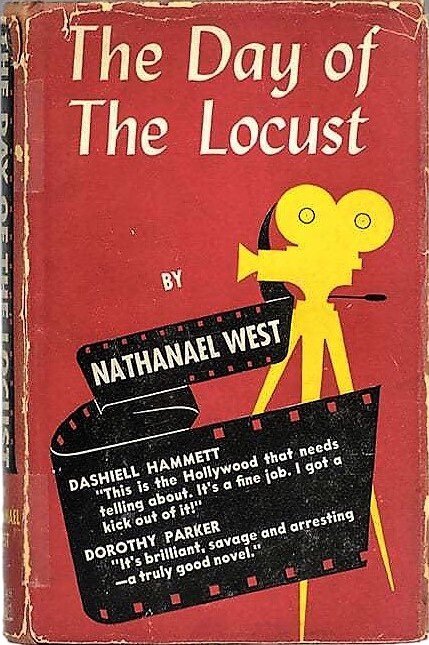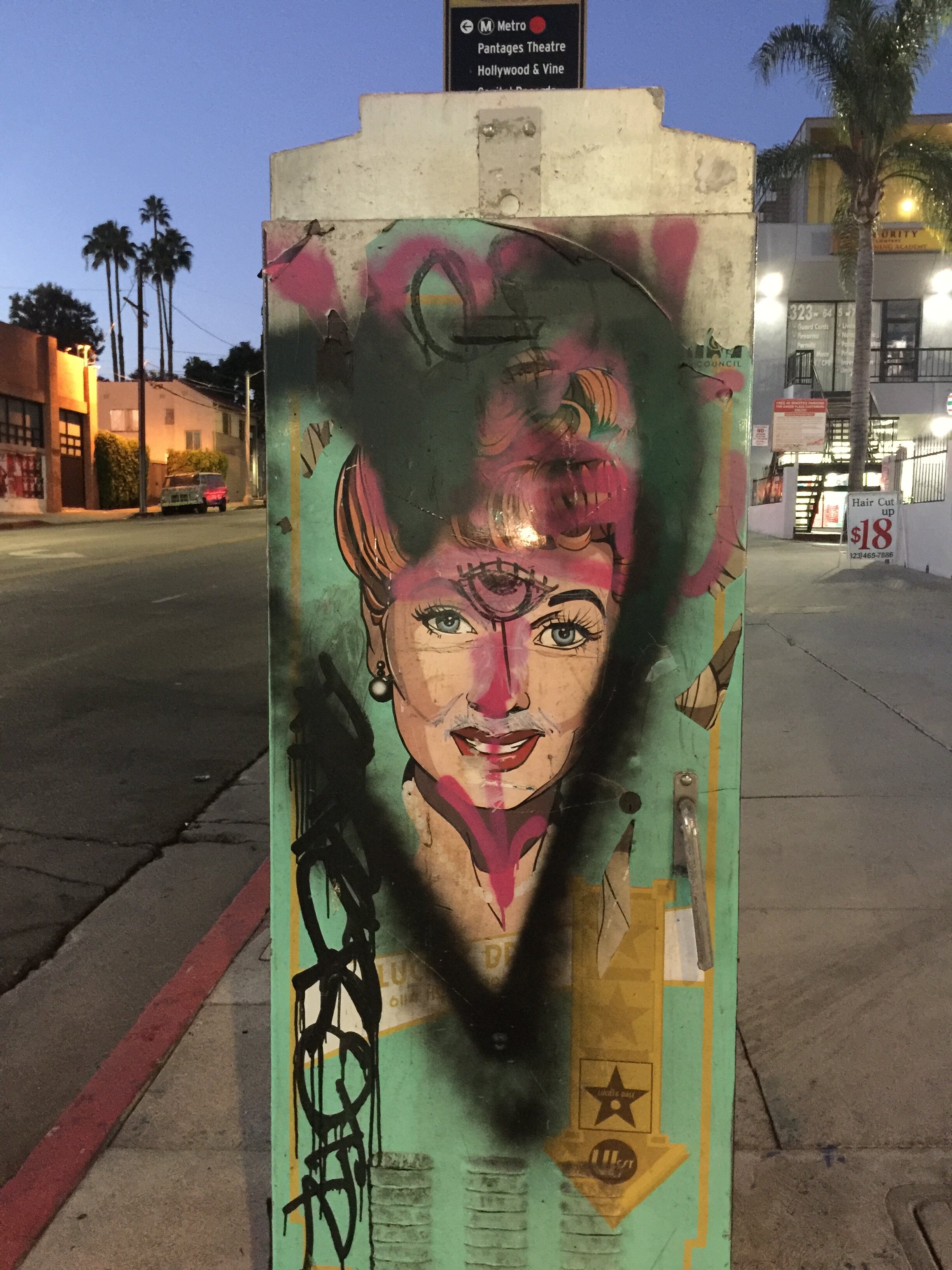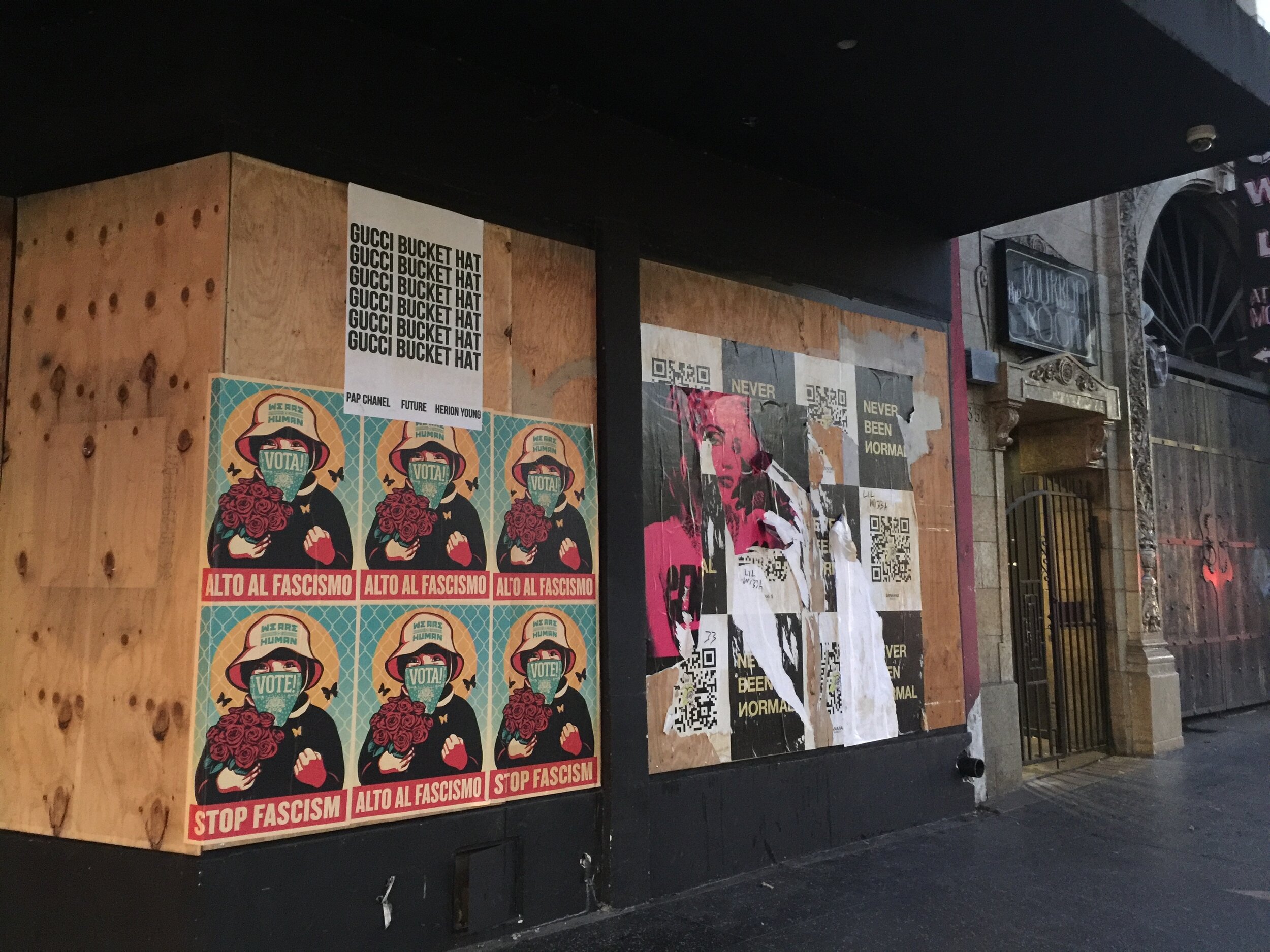It is the Saturday morning of Election Week.
It’s been four days (preceded by four years) of holding my hands over my face and peeking at the news from behind my fingers. News outlets have finally called the election for Biden/Harris. I wish I could say that I had the feeling of waking up to a different United States, but I’m steeped in negativity and dispassionately trying to will myself towards cautious optimism. I have no hopes that Trump will concede or fade quietly into the background. I’m fearful of some call to arms from his inexplicably rabid supporters and I’m wondering what’s next in this bizarro version of absurdist reality I find myself living in. My friend texts me a video of herself dancing in the streets. Cars are honking as they drive by. It’s a celebration I wish I could believe in. It’s been a really hard year. I’m at home, bristling, we are living in the Divided States of America.
With my disillusionment and resignation, I figure I’m in the perfect mood to walk a few miles in Tod Hackett’s shoes.
So I head to Sunset & Gower studios where we first meet the anti-hero of The Day of the Locust. The novel was published 81 years ago. I start to feel excited to get my mind off my anxiety and apprehension. Here I am today, walking the same streets, trying to imagine the post-Depression and pre-WWII era Hollywood that Nathaniel “Pep” West, as he was known to his friends, lived, worked, and wove into the pages of his novel. Oddly enough, I feel the vibes might not be too far off. Store fronts have barely taken down the plywood after weeks of protests flooded the streets when a nation under quarantine watched the brutal last 8 minutes and 46 seconds of George Floyd’s life at the hands of of law enforcement. Fearful of more social unrest, things have been boarded up since Monday. We’re talking about Fascism again, white supremacy is front and center. One side fearing the emboldening of American neo Nazism. The other railing against Antifa “terrorists.” Covid cases are on the rise, countries in Europe have gone into a second shut-down. Seems a lot of us are expecting the worst and trying to hope for the best. We just can’t seem to agree on what, exactly, “the best” might be.
This is where my head is when I arrive at Gower and Fountain and start walking up towards Sunset. Sunset & Gower studios used to be Columbia pictures studios where West worked as a contract screenwriter and where Tod Hackett works as a set and costume designer in the novel. As I walk along the side of the studio passing the marked stage doors, my thoughts turn to the cavalry Tod hears in the opening scene of the novel: “The groan of leather mingled with the jangle of iron and over all beat the tattoo of a thousand hooves.”
West is constantly drawing the reader’s attention to the fantasy and artifice of Hollywood. The working title, “The Cheated,” points directly to one of the main themes of the book – the grime behind the glamour of the Hollywood dream and the resentment that can come of disillusion. West’s Hollywood promised adventure, romance, and riches. California promised an earthly paradise and endless summer. Neither delivered and many who were lured by these promises weren’t just let down, they were left feeling betrayed, robbed of a life and dream that seemed owed to them.
It’s hard to ignore the autobiographical elements in the story. West toiled at writing formulaic screenplays while struggling to find an audience for his literary work. In a broader sense, after the boom of the roaring 20’s, the bust of the Great Depression left many in despair. Dust Bowl refugees fled the drought devastated farmlands of the Southern Plains for the imagined utopia of California, only to find more hardship. Hardships John Steinbeck would fictionalize in The Grapes of Wrath the same year Locust was published. But while Steinbeck was an instant best-seller, West barely sold 1500 copies. It wasn’t until a decade after his death in a tragic car accident that West began to garner more attention and acclaim. Perhaps his biting sarcasm and grotesque humor was a bit too soon, or maybe he held a fun house mirror up for many who refused to see themselves in its twisted reflection.
The historical context of the novel is one of great turmoil, uncertainty, and polarization. You have to take a close look between the lines to see the politics in The Day of the Locust, but it’s there. The camp in the hills where Miguel, a Mexican cockfighter and Earle, an Arizona cowboy, both live is a nod to the shanty towns that sprang up across the country. The feelings of xenophobia and nativism that prevailed inform a sense of danger and hostility about them. Placed in direct contrast to their indigency is the bored and terrible opulence of the wealthy movie moguls who sink a replica of a dead horse, complete with bloated and black protruding tongue in a pool. The year before West moved to Hollywood, Upton Sinclair, an author and outspoken socialist, ran as the Democratic Party candidate for Governor of California in 1934. The Republican campaign that defeated him did so with fear mongering that included faked news reels of hired actors in the role of “tramps” storming California to start the “Sinclair Revolution.” West’s novel centers around people living on the fringe, perched precariously somewhere between the hard reality of daily living and a hazy utopian dream, threatening to boil over at any moment.
There are so many parallels to the cultural moment we find ourselves in. I flash back to June this year when Black Lives Matter protests marched through Hollywood and down Bronson - the street I live on and I stood on my balcony watching a different kind of cavalry on my street and on the news across the country. No one followed behind with a megaphone screaming: “Stage Nine - you bastards - Stage Nine!” like they do in the novel. If West were alive today, he might have tried to monetize a meme account instead of contract screenplays to make ends meet.
Standing at the corner of Sunset & Gower next to the studio, I look to the strip mall across the street called Gower Gulch. In the book, this is where Earle Stoop, a real cowboy from Arizona, hangs out hoping for a producer to run out and make him a film cowboy in a Western. There are framed pictures on the wall of the Rite Aid. The first one I see shows a horse drawn carriage making a dramatic escape from marauding Natives. There are also several portraits, the only ones I recognize are Pocahontas, John Wayne, and Wild Bill. Despite all the cowboy kitsch, Gower Gulch was never a movie set but real cowboys did hang out here hoping for bit-parts as extras in the movies made across the street. I think about my dad’s love of Westerns and the great myth of the American Cowboy. And then I think about the Dakota Access Pipeline, the continued desecration of Native land, the protests at the end of 2016 and Trump's order to expedite the project shortly after. The Hollywood dream machine did much to disseminate an American mythology that continues to inform national identity today. West, for all his acerbic wit and scoffing at the B-scripts he wrote, also believed in the power of movies and fiction.
Tod takes a streetcar from the studio to Vine, I’m walking because I’m not stoked about a Metro bus ride in the middle of a pandemic. I walk past the Palladium and see the sign on the Marquis to “Rock the Vote Here Today!” The building is lined with a Shepard Fairey mural exclaiming “Power & Equality,” reminding us: “Injustice anywhere threatens justice everywhere.” I’m grateful for this art and I think about the way Tod continues to turn his attention to “The Burning of Los Angeles,” a fantastic painting which he envisions as his magnum opus.
“He was going to show the city burning at high noon, so that the flames would have to compete with the desert sun and therefore appear less fearful, more like bright flags flying from roofs and windows than a terrible holocaust. He wanted the city to have a gala air as it burned, to appear almost gay. And the people who set it on fire would be a holiday crowd.”
In this way, West’s novel is the written version of Tod’s painting. He shows us a hyper-real Hollywood, amplified to its most absurd and grotesque proportions. The mastery of the novel lies in West’s detached perspective. Yes, it is dark and cynical. Yes, it can come off as pretty unforgiving and scathing in its emphasis on the overall artifice and emptiness of this town and its characters. But West simultaneously imbues the story with an undercurrent of gentleness, a wistful longing for beauty, that translates into an understanding that acknowledges we all, in some way, have nurtured a dream too.
On my walk, I’m approaching Hollywood & Vine. A billboard at the bus stop says “Millions of People. One Heart. We Keep Going. We are Angelinos.” Another beautiful dream, like our grand American Dream. Langston Hughes’ poem “Harlem” comes to mind. But there is truth there. We do keep going. And that is beautiful. At the light heading North on Vine is a group of guys on street motorcycles. They’re laughing and as soon as the light turns green, they rev up, one pops a wheelie and a few cars honk in approval behind them. People are joyful. For a moment I feel we’ve been granted reprieve to imagine the possibility of a new dream. A barefoot young man in tattered rags passes me on the crosswalk. What does he dream about? I lower my eyes and see I’ve reached the Hollywood Walk of Fame.
I don’t recognize most of the names I’ve seen. Many are cracked, in need of repair. I stop at one that stands out. There’s no name on it. Just a broken star on a dirty sidewalk. I think West would approve. Across from Trader Joe’s, I see a man in a coat. I cross and ask if he’ll allow me to take a picture. He smiles when I ask and is happy to oblige, taking a few seconds to get his pose right. He tells me his name is Bishop Reed, that he moved to Hollywood in the 70’s. He tells me he used to be a pimp but now he’s a minister. I could imagine him as one of West’s Hollywood characters - another eccentric, quick-witted, old school hustler, ready to charm the pockets right out of your pants.
The description may well have suited West himself. I read he stole someone’s identity to get into Brown University, was an avid plagiarist while in school, and cooked books at the NY hotel he worked at while writing Miss Lonelyhearts – the novel he sold to a film company that brought him to Hollywood. I think of my own path here - leaving Miami in my mid-20’s to hustle pounds of weed to dispensaries when they were still in a legal grey area. I used to cashier at the Farmer’s Market on 3rd while moonlighting as a burlesque dancing fire-breather. Now I’m a 30-something-year-old Sophomore at USC with a mug shot. Maybe I’m biased, but when I read flighty Faye Greener, a would be femme-fatale nymphet and her sad dad, ex-vaudeville clown Harry, they feel like caricatures of people I have known, I’ll even cop to seeing a bit of myself in them. So I laugh with them and not at them, as I choose to imagine West did too.
“It is hard to laugh at the need for beauty and romance, no matter how tasteless, even horrible, the results of that need are. But it is easy to sigh. Few things are sadder than the truly monstrous.”
I visit West’s old apartment building, a mock tudor on Ivar Avenue, fictionalized as the Chateau Mirabella in the novel. This is where Tod meets Honest Abe Kusich, a book keeping dwarf sleeping in the hallway after being kicked out by some “dame.” Abe hands Tod a business card with an endorsement on it credited to Stanley Rose. Rose owned a bookstore on Hollywood Blvd. next to Musso & Franks with a barroom in the back where West and other writers hung out. It’s a smoke shop today, glass pipes and bongs lining the front window where copies of West’s first edition once stood. At the top of Ivar is a Spanish colonial style building. West is consistently harsh on La-La Land architecture where Spanish-colonial revivals stand next door to Tudors, across the street from Story Book cottages. The overall effect is absurd. Whimsical at best, tacky at worst. But this a place of imagination, of amnesia, not looking to the past for lessons of heritage or history so much as pulling narrative threads together in a mish-mash, hopefully under good lighting. And as I stand at the top of Ivar snapping a picture looking North, the lighting is actually, really good.
Hovering at the edges and closing in towards the novel’s terrible conclusion are “the people who come to California to die.” Tragically embodied in the character of Homer Simpson, a mid-westerner who moves to California and sits in his yard staring at lizards catch flies while hopelessly woeing Faye Greener. The most animated thing about him are his too-large hands which seem to have a life of their own.
“His sadness turned to anguish before he knew it and became sour. He was miserable again. He began to cry. Only those who still have hope can benefit from tears. When they finish, they feel better. But to those without hope, like Homer, whose anguish is basic and permanent, no good comes from crying.”
The sour anguish of Homer and others like him culminates in Tod’s imagined opus come to life at a movie premier in front of Kahn’s Persian Palace Theater as a frenzied mob rips Homer to shreds. Tod narrowly escapes and is rescued from the fray in a police car, laughing then screaming at the top of his lungs as they drive away.
It might be tempting to dismiss The Day of the Locust as pulp fiction or the bitter ravings of a failed Hollywood writer. Sure, there’s no shortage of misfits or smut. But as I walk down Hollywood Blvd toward’s Grauman’s Chinese Theater, the real life inspiration for Kahn’s in the novel, I think about the near constant undercurrent of tension, fear, and volatile energy that has permeated the city and so much of the country over the past year. I think about my own struggle to feel relieved or hopeful today and the trepidation with which I hesitantly turn my thoughts towards the future. In a way I am strangely comforted by the dark, surreal world of the book. The power of art lies in its ability to give voice to our ugliness, our vulnerable frailty, as much as to our hope and our triumph.
Sometimes things seem so bad, all we can do is cry, laugh, and scream while clinging to whatever gets us through the day. We are only human. And at least right now, if I’m not exactly elated, I am at least encouraged by the millions of people celebrating the tentative election results today.






























